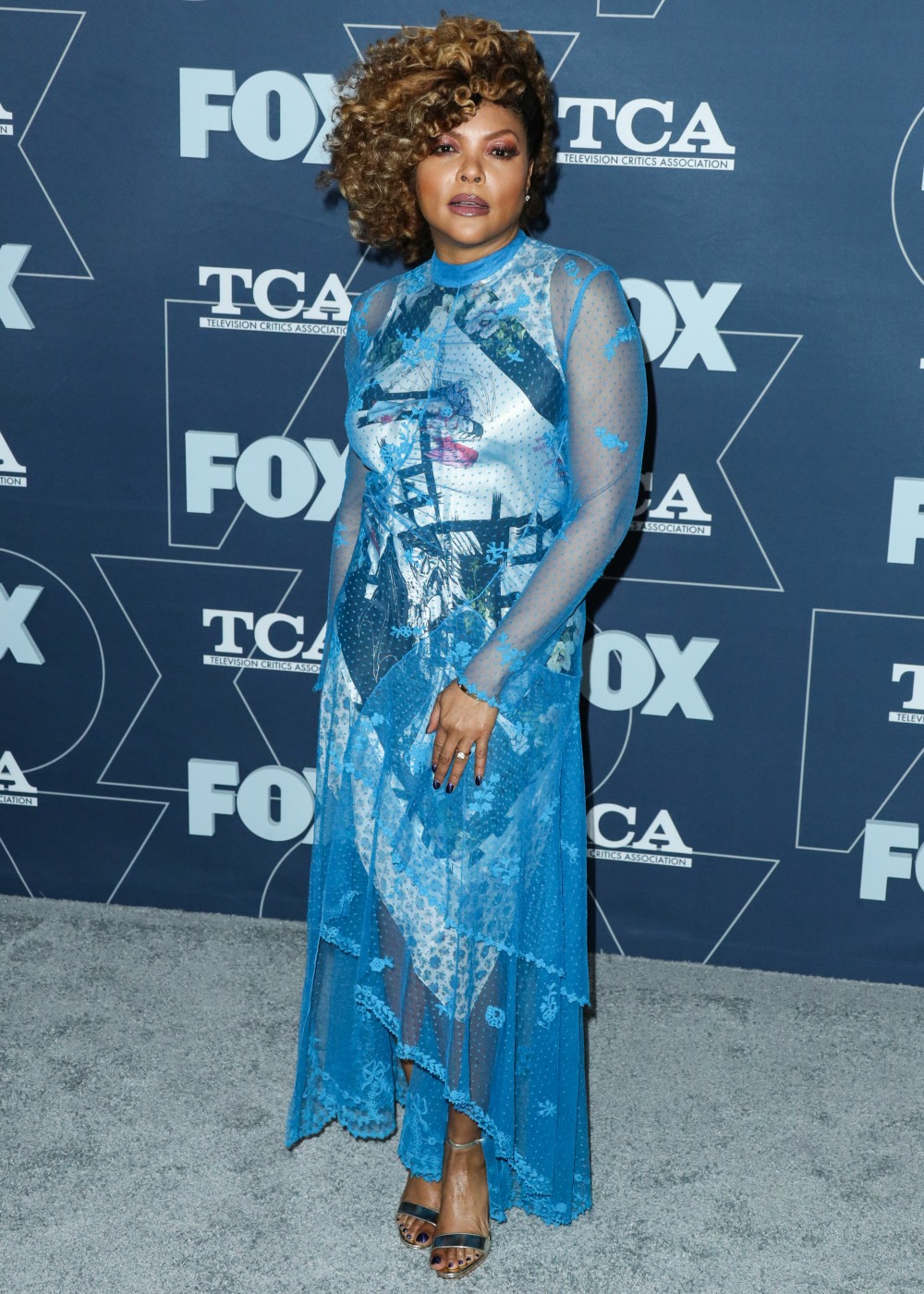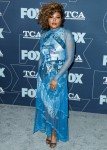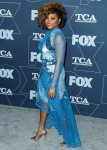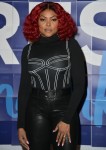This year’s Essence Festival went entirely online, with appearances from all kinds of celebrities, politicians (Joe Biden was there) and “wellness” people. Taraji P. Henson took part in the Essence Wellness House, because for many years now, her thing has been mental health in the Black community. She’s spent years doing work to destigmatize therapy and prioritizing mental health in her community through her foundation, the Boris Lawrence Henson Foundation. She’s also talked a lot in interviews about how sick she is of being stereotyped in casting and in life, and how specifically black women need to move beyond the “empowered strong black woman” cover and really talk about what’s happening to their bodies and their communities. All of that comes up in Taraji’s Essence video:
Oscar nominee Taraji P. Henson recently revealed she ‘takes issue’ with so-called ’empowering’ terms like ‘strong black woman’ or ‘black girl magic.’
‘We’re not fairies! We don’t magically rebound from pain. We hurt and suffer just like others,’ the D.C.-born 49-year-old said during Essence Festival’s Wellness House last Thursday. ‘It started off as an empowerment saying…because [black women are] always neglected, we’re always at the bottom of the totem pole. We’re the least respected on the planet. And so, it came as a [saying] to empower us. But then, as years [went] on, we’ve been ignored because of that very statement. It dehumanizes us. It dehumanizes our pain. It belittles our tears! It belittles our pain.’
‘We’re supposed to be able to watch our brothers and sons and fathers get murdered in the street but we can take it because we’re strong. We can deal with it, we can handle it. And that’s just not true…The damage that it was creating for us and the stigma around black women to implement that we are strong enough to get over anything. We have to be careful with that. Very careful with that term…Strength is in being vulnerable, and that’s what I want my people to understand. The strength is in being vulnerable and being honest with yourself, and saying, “You know what, I’m scared right now.” Or “I honestly don’t know what to do right now.”‘
I like that she briefly talks about the history of those terms or tropes, that some of them were meant to be empowering, or that they were used to combat the erasure of black women’s contributions and work. For example, I’ve only ever seen “black girl magic” and “black girls rock” as positive, empowering labels and affirmations. But Taraji is talking about something deeper, which is that black women are “supposed to be” strong and tough and impervious and how that dehumanizes or minimizes their lived experiences and their trauma. She’s absolutely right.
Photos courtesy of WENN.















I was a big fan of her, as I love to champion other POCs but then a year or so ago she had a disagreement with a Latino guy on twitter and she called him Dora, that totally put me off her!
Yeah, I feel like she’s had one or two rather offensive things like that. I’m sorry that happened.
Agree, liked her so much before but she does tend to say crazy things from time to time. Also a friend of mine worked with her and to put it nicely she is a piece of work… not very pleasant at all.
wow. I had to google ‘Dora’. That’s ugly and disappointing. as a POCs, I have to remind myself that POCs are quite capable of being racist too. Racism is a terrible human condition and I unfortunately can’t see an end to it. I have no idea what we are all going to do.
Awe, Diego, that’s sad to hear. I adore her, but thats a bummer. All I can think of is that social media shows all of us, all of our mistakes as well as our best selves. I root for her.
I always thought that “black girl magic” was about celebrating little girls who are not celebrated by the broader society in which they live, and emotional and spiritual strength as a cultural positive is something that seems to be encouraged in black society (speaking totally as an outsider) whereas in white culture little girls are still either encouraged to just be pretty and compliant or just be tough and smart with little emotional strength. I can see her point though; I don’t think adult black women are allowed the space to be tired, or angry, or stressed, or, you know – human.
It’s interesting these messages we impart to our children.
I think this is true, these are adult woman, they should be given the space to be unfeeling, cranky, not have a smile on their face, they shouldn’t be expected more than what we’re expecting from their white counterparts, they should also have the choice to be an activist and speak about their colour IF THEY CHOOSE. They shouldn’t be burdened anymore than anyone else. And they are not magical, they hurt, worry and feel humiliated like everyone else, and if they come from bad or uneducated backgrounds– probably more than anyone else, and had to try harder than anyone else. In Hollywood we like to portray rich beautiful white girl has all the problems and needs all the support, when the reality is grotesquely oppostie.
I agree with her point and yet, I am a Black Woman AND a fairy.
❤️
I totally see her point about what are (superficially) positive stereotypes. It’s just another way of reducing a person to something less than a three dimensional individual.
Hmm does she have an issue with black boy joy? It’s just supposed to be a way of lifting up and celebrating Black women and girls who are not typically celebrated for their achievements of beauty or just being. Black boy joy doesn’t mean black boys aren’t allowed to be unhappy.
I used to like her but her comments on “why isn’t Weinstein arrested” and that she didn’t see why R Kelly was arrested have me seeing her as a rape apologist. I don’t get how she can not understand why was wrote was wrong and think she is helping mental health.
I agree with you that Taraji does a lot of rug sweeping, especially for abusers and rapists she likes or is friendly with, like Terrence Howard. I completely understand that they developed a friendship over years of being close colleagues, but she’s always been very quick to attempt to silence the women who’ve come forward to tell *their* stories of abuse. I think it’s one thing to love a friend through something horrific that they may have done, and another thing entirely to use a massive platform to smother the testimonies of the survivors of a friend’s monstrous behavior. So I really can’t with Taraji. “Black women need to speak their pain…unless they’re giving an honest account of the verbal and physical abuse they suffered from Terrence Howard…” — It’s just a whole mouthful of BS…
Wow, I hadn’t thought “black girl magic” that way before. My brain is growing!